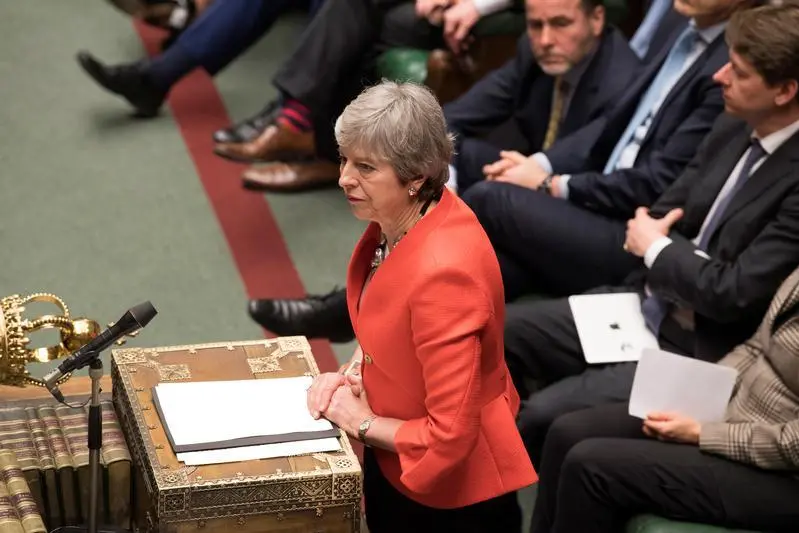PHOTO
LONDON - The European Union didn’t kick the Brexit can so much as nudge it. After another late-night summit in Brussels, leaders of 27 EU countries did what they do best and extended the deadline for a difficult decision. But by giving Theresa May’s government only two more weeks to agree a plan for leaving the bloc, they also sharpened Britain’s difficult choices.
There are several conclusions to be drawn from the European Council meeting that finished late on Thursday. First, the EU has all but given up on the Brexit deal it negotiated with May. After two crushing defeats, Britain’s prime minister is expected to try again to secure parliamentary support for the deal next week. But EU leaders hold out little hope. French President Emmanuel Macron told his counterparts that after listening to May he had reduced the likelihood of her winning the vote from 10 percent to 5 percent, Reuters reported.
The second conclusion is that the EU is keen to avoid a no-deal Brexit – or at least to avoid being blamed for that outcome. In an ill-judged television address on Wednesday night, May suggested that such a “no deal” Brexit was the most credible alternative to her plan. But by shifting the Brexit deadline from March 29 to April 12, the EU blunted that threat and gave the UK parliament two more weeks to find a consensus. European Council President Donald Tusk also dangled the possibility of a longer extension, but only if Britain agreed to take part in European Parliament elections at the end of May.
For all the shuffling of dates, Britain’s Brexit choices remain essentially the same. It can approve a version of the withdrawal agreement that May negotiated. It can decide to stay in the EU, probably after holding another referendum: on Thursday more than 2 million people signed an online petition to cancel Brexit. Or Britain can crash out of the EU without a deal. That risk has been postponed, but not removed.
CONTEXT NEWS
- European Union leaders on March 21 gave UK Prime Minister Theresa May a brief reprieve before Britain could lurch out of the EU. The 27 countries kept open options that give Britain an outside chance of staying in the EU for much longer.
- The EU said Britain’s departure date would be extended from March 29 to May 22 if Britain’s parliament backed the withdrawal deal that May had agreed with Brussels. Failure to do so would mean the UK had until April 12 to approve an alternative plan, or apply for a longer extension that would require the country to participate in European Parliament elections, which will be held at the end of May.
- Until April 12, said summit chair Donald Tusk, "all options will remain open and the cliff-edge date will be delayed".
- "The UK government will still have a choice between a deal, no deal, a long extension or revoking Article 50 (the withdrawal notice)," he told a news conference.
- The pound was trading at $1.3115 by 0842 GMT on March 22, little changed from the previous day’s close.
The author is a Reuters Breakingviews columnist. The opinions expressed are his own.
(Editing by Swaha Pattanaik and Bob Cervi)
(( peter.thal.larsen@thomsonreuters.com ; Reuters Messaging: peter.thal.larsen.thomsonreuters.com@reuters.net ))
© Reuters News 2019





















